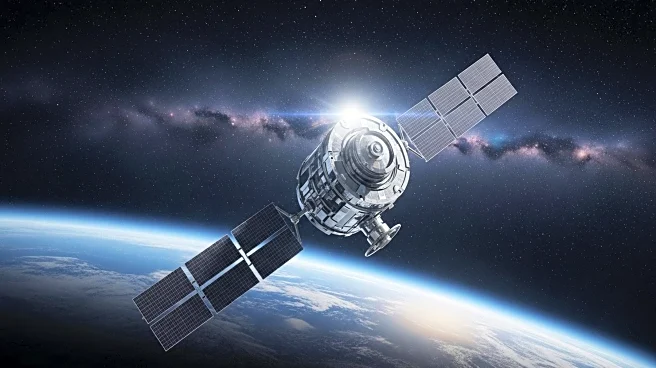What's Happening?
The Federal Communications Commission (FCC), under the leadership of Chairman Brendan Carr, has declared October as 'Space Month' to accelerate satellite regulatory reforms. This initiative aims to overhaul licensing and spectrum rules to enhance U.S. competitiveness in the global space industry, particularly against mounting competition from China. The FCC plans to vote on two main proposals: streamlining the licensing process for satellites and Earth stations, and revising siting rules for Earth stations in the upper microwave bands. These reforms are part of a broader deregulatory push aligned with the Trump Administration's Build America agenda, which seeks to strengthen U.S. leadership in what is being termed as Space Race 2.0.
Why It's Important?
The FCC's initiative is significant as it addresses the growing competition in the space industry, particularly from China, which is rapidly advancing its satellite capabilities. By streamlining regulatory processes, the U.S. aims to maintain its leadership in space technology and ensure that American companies can compete effectively on a global scale. The reforms could potentially unlock more than 20,000 megahertz of spectrum for satellite broadband, fostering innovation and economic growth. This move is crucial for the U.S. to secure its strategic interests in space and prevent other nations from dominating critical orbits and data access.
What's Next?
The FCC is expected to vote on the proposed reforms, which could lead to significant changes in how satellite and Earth station applications are processed. The outcome of these votes will determine the pace at which the U.S. can implement these changes and respond to international competition. Stakeholders in the space industry, including companies and policymakers, will be closely monitoring the FCC's actions and their implications for future space endeavors.
Beyond the Headlines
The FCC's reforms highlight the geopolitical dimensions of space exploration, where regulatory frameworks can influence global power dynamics. The emphasis on deregulation reflects a shift towards more market-driven approaches in space policy, potentially leading to increased private sector involvement and innovation. However, this also raises questions about the balance between deregulation and ensuring safety and sustainability in space operations.









